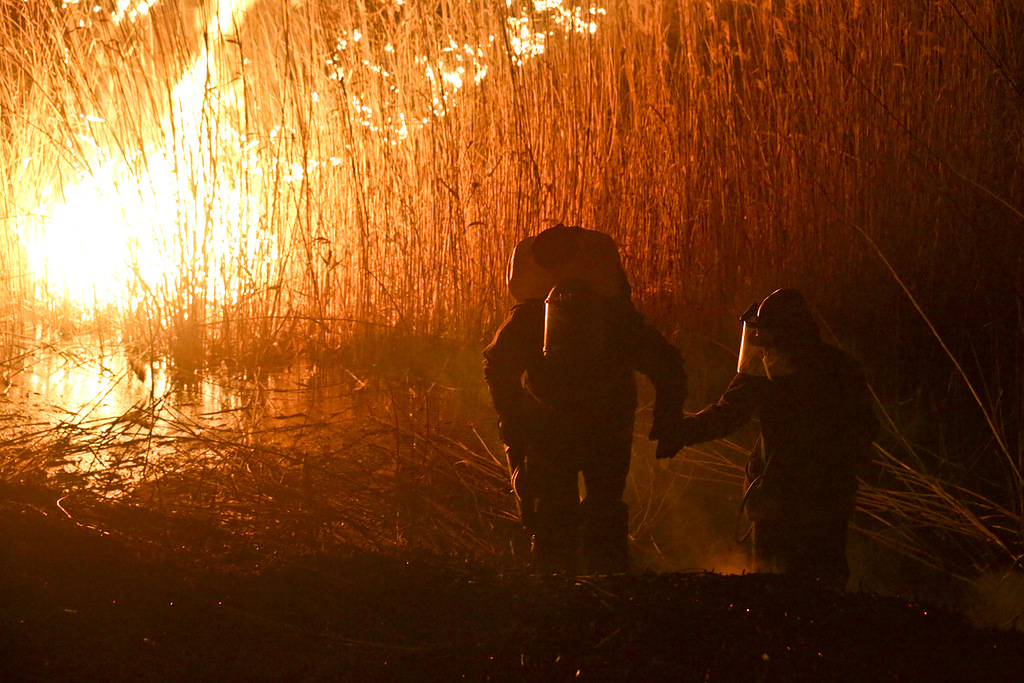Those brave women and men whom I know - they realy make me think that something could change. I will say a word about my crew - about doctors, students, IT-guys, teachers... They all are volunteers of Greenpeace Russia WIldland Fire Program - WFP. They spend their vacations and days-off to breath smoke and risk their health and lives. Strange people - aren't they...
Human should be aware of fire. As fire is dangerous. So, what make those people go into fire to fight it? The fire they fight doesn't threat their homes. It threats wild areas. And a huge governmental organization is obliged to do this job. It doesn't do it properly, but still it is much more powerful than a pack of 14 volunteers with two old cars... If someone calculates how much fires were suppressed by our volunteers and compares it with the total amount of fires, the cobclusion will be very tough - Greenpeace fire-fighters cannot change anything. More sense is to fight wind-mills.
But I can witness - those brave men and women do make change.
This is not only about to empower Greenpeace message that wildfires are out of control. This is not only about to witness worsening of situation. We can make researches to prove the interconnection of fires and climate change and can expose wildfire role in deforestation. We can stay outside of a problem while communicating it. But we cannot avoid feeling that it is not right to stand aloof. The fire is a tragedy. And to speak about it, to start any discussion on it we need to feel it ourselves. We need to breath the smoke and feel the heat before we will say.
It is more about moral obligation not to be sofe-seeting-advisor.
Since 2010 Greenpeace firefighters do their job. We blessed not to have casualties in our team. After 5 long years of hard discussion with the state we forced government to ban dry vegetation burnings as them are the main reason of all the wildfires in Russia. And through all this discussion our authority improved with every firefighting action our volunteers made.
That was a crucial moment for our fight - to be concidered as experts. And there is no other way to be an expert in firefighting but only to be a firefighter.
Volunteers became the back-bone of our team. They showed that an 'ordinary person' could do an extra-ordinary things. It was very important in a social context. Volunteers ruined governmental monopoly for firefighting expertise. For the public opinion it was important to understand that small band of volunteers could be much more effective than huge governmental bodies.
That was volunteer team who ruined typical state communication line - 'fire-fighting is so much complicated that society cannot judge government'. When firefighting isn't too much complicated for small volunteer group then it changes from some 'miracle' to ordinary activity, that could be judged and controlled by society.
There are lot of limitations for sure here. And we understand clearly that volunteer groups will not replace state units, but they could play roles of civil control, and kind of 'indicator' of the quality of governmental work.
On 1st of March 14 volunteers on 2 cars will start their trip down South to face fires in Southern plains. Some of them will never understand how much they realy do when they confronting wildfires. And yet they will do their fight so if it was their duty, not a will.
